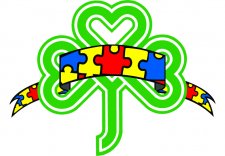Autism Unveiled: Tracing the Journey
Erie, PA (April 2, 2025)- There's been a lot of buzz lately about the dramatic rise in autism diagnoses. In 2023, the Center for Disease Control (CDC) reported that 1 in 36 children have autism spectrum disorder (ASD), a staggering increase from 1 in 10,000 in the 1970s.
To understand this surge, we need to look at the history of ASD. In the 1960s and 1970s, autism was often misdiagnosed as childhood schizophrenia or attributed to emotional trauma. The turning point came in 1973 when Congress passed the Individuals with Disabilities Education Act (IDEA), mandating schools to support students with disabilities, including ASD. This led to more diagnoses and better support.
In 1980, autism was officially recognized as a distinct diagnosis, and the 1990s brought a wave of research and advocacy. This helped us understand autism as a spectrum disorder, emphasizing the need for early intervention. The Diagnostic and Statistical Manual of Mental Disorders, Fifth Edition, in 2013 further expanded the definition of ASD, including conditions like Asperger's Syndrome.
So, why the rise in diagnoses? Increased awareness, changes in diagnostic criteria, and improved screening practices all play a role. Importantly, there's no credible evidence linking vaccines to autism; numerous studies have debunked this myth. Most evidence points to genetic factors as a significant contributor.
Families facing an ASD diagnosis can feel overwhelmed initially, but with the support of early intervention programs and therapies like Applied Behavior Analysis (ABA), remarkable progress can occur. In summary, early detection of autism opens the door to a range of interventions that can make a profound difference in a child's development and overall well-being. It empowers families with the tools and support they need to help their child thrive.
Despite this, the CDC plans another study on vaccines. In an era focused on eliminating waste, one must question the necessity of yet another study on this topic. Why?
About the Author
As the Executive Vice President of the Barber National Institute in Erie, Pennsylvania, Dr. Maureen Barber-Carey, Ed.D. has committed her life, both professionally and personally, to ensuring that children and adults with disabilities have every opportunity to reach their fullest potential.
Prior to serving in numerous administrative roles at the Barber National Institute, she was a special education teacher in the Erie School District. She is responsible for the overall clinical, administrative and financial operations of the Children & Youth Service line within the Barber National Institute, which includes the PA Approved Private School, the Elizabeth Lee Black School (ELBS). This also includes the Early Childhood programs, including Early Intervention preschool, Happy Hearts daycare, and the Pre-K Counts program.
Dr. Barber-Carey has her undergraduate degree from St. Mary’s College, Notre Dame, Indiana and received a Master’s at the University of Missouri. She then attended Columbia University for her doctorate in educational administration. She has received numerous awards including: Temple Grandin award for outstanding leadership in the autism community by Autism Connections of PA; William Booth Award for Outstanding Contribution to Humanity; Pennsylvania Honor Roll of Women; Friends of Education Award, Gannon University; Inclusion Award of Interagency Coordination Council for Early Intervention; and Outstanding Young Woman of the Year from Jaycees.


